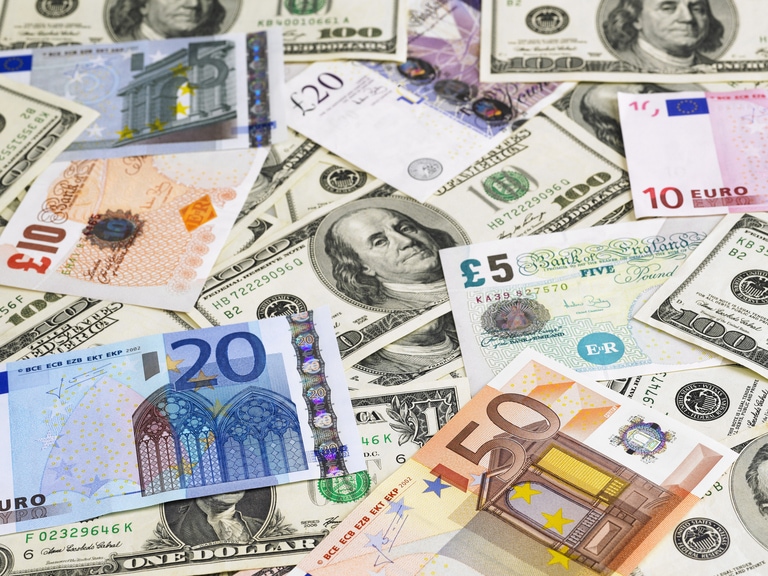After yesterday’s little setback European markets have seen a modest rebound today, as we come to the end of what looks set to be a negative week for stock markets.
Europe
Having seen such a strong start to the year there was always the probability that we’d see a little bit of profit-taking, however that doesn’t mean that the early year optimism that has been the hallmark of this early year rebound is evaporating, and that we might start to see a sharp move lower. One bad day does not make a trend, despite increasing evidence that the global economy is slowing down.
On that basis, we’re seeing a decent day for the FTSE 250, with the likes of Boohoo and Asos making decent gains after being upgraded to “buy” by Bank of America. We’re also seeing a strong end to the week for the likes of JD Sports, Burberry and Sports Direct owner, Frasers Group.
The FTSE 100 is lagging behind its European counterparts today, having found itself held back this week by weakness in some of its bigger cap components like Shell, Unilever and AstraZeneca.
SSE shares are higher after the energy utility provider revised its full year adjusted EPS expectations to more than 150p per share. They also said the business was on course to deliver in excess of a record £2.5bn in investment in its attempt to support the transition to net zero. The company said its Net Zero Acceleration plan of £12.5bn was continuing at pace.
Planned output on renewables output fell short of expectations of 7,623 GWh, mainly due to unseasonably calm weather and delays to the Seagreen project.
US
US markets got off to a mixed start, with the Dow Jones lagging the S&P 500 and Nasdaq 100, which is leading the way higher, despite another poor housing report for December, which saw a monthly decline of 1.5%, the eleventh decline in a row, and marking a 34% drop year over year. While the Dow has lagged the Nasdaq 100 has pushed higher, although it’s unlikely to be enough to prevent another negative week. Tech outperformance has been driven by the announcement of job cuts across the sector.
Alphabet owner Google has become the latest tech giant to announce a series of job cuts today as it looks to reduce global headcount by 12,000, or 6% of its workforce. Today’s announcement follows on from Microsoft and Amazon earlier this week and probably won’t be the end of it if we see further economic weakness in the months ahead. Despite this unwelcome news all of these tech giants still have a headcount much higher than was the case pre-pandemic.
Online home goods retailer Wayfair has also announced it is cutting 1,750 jobs, and 10% of its workforce as it gears up for a weaker economy in 2023.
Netflixshares have also pushed higher after finishing their fiscal year on a high, adding 7.6m new subscribers in Q4, taking total subscriptions to 230.75m, while revenues also beat expectations at $7.85bn, and matching Q3. Profits on the other hand were lower than expected at $0.12c a share or $55m. With such a big increase in subscriber numbers its surprising that revenues weren’t higher, which suggests that a lot of these came from the lower priced ad tier. Revenue and profit guidance was also below expectations albeit higher than Q4 at $8.17bn and $2.82c a share. Co-CEO Reed Hastings also announced he was stepping down and was taking up the role of executive chairman.
FX
The pound initially slipped back a touch after December retail sales slid by 1.1%, a surprisingly poor outcome given the positive trading updates seen from a range of UK retailers so far this year. One of the more notable features of the data was that while sales volumes were predominantly lower, the amount of money being spent held up, reinforcing the fact that consumers are still spending money, but they are being more discriminating about how they spend it. Over the last three months volumes fell by -5.7%, however value saw a rise of 3.6% excluding fuel. Consumer confidence numbers for January also fell back sharply to -45 as people got a dose of the January blues, as they look to pay off any pre-Christmas spending. This morning’s numbers haven’t stopped the pound from having its strongest week against the US dollar since November, as it looks to push above the 1.2400 area.
The Japanese yen has been the worst performer today after Japanese CPI came in at its highest levels in over 40 years at 4% and the Bank of Japan gave little indication that a change in monetary policy was imminent when it comes to its YCC policy, after Kuroda said that policy was likely to remain expansive for some time to come. Today’s rebound in the US dollar has seen the currency move briefly back above 130.00 as it tries to head back towards the highs this week.
With a number of Fed policymakers leaning towards another slowdown in the pace of rate rises when the central bank meets at the beginning of February, gold prices have continued to edge higher this week, hitting a fresh eight-month high in the process. The growing perception that the Fed is set to be less hawkish over the coming weeks looks set to push gold prices higher for the fifth week in a row.
The big slide in crude oil prices seen at the start of the year appears almost ancient history now, with prices set to close higher for the second week in a row as traders bet on a sharp rebound in demand as the Chinese economy reopens after relaxing its Covid lockdown. As Chinese New Year gets under way markets continue to price in a strong rebound in demand over the holiday period.






